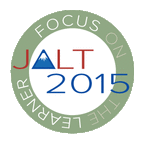| This presentation was a bit of an eye-opener, as I had prepared remarks and discussion items for teachers well-experienced in learner logs and curriculum goals, but for the most part I believe my audience was more familiar with stamp cards and star stickers. I'm happy with what I said, but I definitely need to package this better the next time around so things are sinking in from the first moment as opposed to near-incredulity. Major elements from this presentation included
Of note: A last-minute opportunity arose when I bumped into a Saitama co-teacher just after lunch, and I offered them a chance to effectively team-teach the presentation - so for accuracy's sake, I'd like Florence Ito-Valderama to receive credit for her work in giving this presentation. Abstract This workshop will inform and prepare attendees for the teacher training, curricula, and expectations necessary to realize student self-assessment in municipal elementary and junior high school ESL contexts. With assessment criteria based on present and future MEXT goals and recently developed “can-do” lists, this workshop is relevant for all public and secondary educators in Japan. |
|
0 Comments
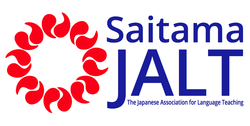 Produced in collaboration by long-time colleague Bradley Semans, this event was not meant so speak to people, so much as be heard, felt, smelled, tasted, and generally enjoyed. This was held in a kitchen of all places, was well-attended, and in general provided the right "feel" so many of us have been looking for in a community of teachers. Abstract: Get your hands dirty with Content and Language Integrated Learning (CLIL) in this curated event: we’ll learn better ways to talk about (and enjoy) chocolate, let our nose start a conversation, outsource our brains with wooden blocks and dice, and learn to play the ukulele. It’s ok, there will be elementary and junior high school students helping you along the way. Oh yeah, we’re going to finish with an ice cream lab, toppings and discussion to follow. CLIL engagements lend themselves to intrinsic motivation, and it is our goal that you may experience this, rather than “learn about it.” In such environments, you will find your job as an educator to be move away from the teacher and towards an enabler of independently-driven learning. Brad Semans develops curricula and trainings for the Saitama City Board of Education. He also owns and operates an English teaching service specializing in content based lessons for the purposes of developing functional bilingualism. His interests include application of theory to the classroom and playing ukulele in lessons. Hiroya, Haruki, Ayaha, Yu, Ao, Kotaro, and Minato have all studied a variety of subjects through English and are all ukulele enthusiasts. Recipe for Plastic Bag Ice Cream Page Link from Saitama JALT 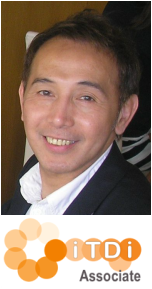 Held in Tsukuba, Ibaraki, Marco Brazil and Don Kerns held a warm welcome for my first visit to Mabuhay Classroom. We followed the abstract to the letter, and produced some original games within the Chaos module. I'll be back soon. The Saitama City BOE has developed a communicative English program for the last eight years. With over 150 schools and MILLIONS of hours of student engagement, several clear winners have risen to the top - with a few more gems yet to be discovered. In this workshop, we'll cover Chaos - an intense and seemingly random multi-task group activity; Red and Blue - a flexible quiz game of risk and strategy; and The Museum - a framework for reviewing the world around us in a critical and collaborative way. All three lessons are able to review and discuss ANY topic you wish, so be sure to bring a notebook and write down all your ideas! Marco Brazil, founder of Mabuhay Classroom and a fellow iTDi associate and busybody, has invited me to share some of my work suitable for Elementary school EFL students. Fifty or So Really Cool Minutes with Learner Autonomy (JALT 2013 International Conference)10/27/2013 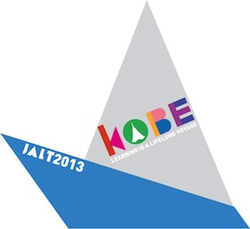 Presented for the JALT2013 International Conference on behalf of the Omiya Chapter. Self-assessment, peer support, student initiative, and self-determination, these are some of the fruits of learner autonomy that I have enjoyed in my classroom and look to enjoy with you. Bring your notebook, your lesson plans, your thoughts and concerns and let's have a ball. Simply put, this was one of the best presentations and lessons I have ever given. Building upon the Omiya workshop, I specifically set out to help answer what people are talking about when they talk about Learner Autonomy, what it looks like in a moment and over time, and how we can promote the proper systems for learner autonomy in our own realms of education. Participants left with their own learner logs, and in at least one case, a custom version of Red-Blue. Click here for the entry on JALT's web page. Keynote and materials available upon request. 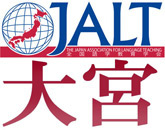 Are you ready to hear your students’ stories? Are you ready to bring Learner Autonomy to the classroom? Self-assessment, self support, peer support, student initiative, and self-determination – these are some of the fruits of Learner Autonomy that leave teachers with a spring in their step, and a thousand more questions to ask. Drawing on experiences from the classroom and the works of Frank Lacey, Leni Dam, and Tim Murphey, I produced a workshop where we could all get an immediate feel for Learner Autonomy not as some conceptual filament, but as something that works, is natural, and we can use this coming Monday. We talked about setting up systems which support Learner Autonomy. We talked about setting up
This workshop would be further developed and served as JALT Omiya's submission to the JALT2012 International Conference. Presented especially for JALT Omiya. Click here for the entry. Video Trailer here. Keynote available upon request.  Presented as a MyShare for the Yokohama Chapter of JALT on December 16 2012. "Build a Town" is a city-building game used to develop decision-making, presentation and debate skills. Two or more groups receive a uniform map with open spaces in which building cards may be placed; these cards depict shops, public services, leisure activities, and more. A short version of the game will be played, with the winners receiving a special prize. Here was a smash hit, and a great way to finish the year. Check out the related JSCE article for Build a Town discussed here, as well as an article regarding the materials used to make Build a Town. Click here for the google doc entry from Yokohama JALT.  The Japan Intercultural Institute (JII) is an associate of the Japan Association for Language Teaching (JALT), and in 2012 I was invited to be a speaker on behalf of JALT at the 2012 Conference held at Shirayuri College. It was one of my best presentations before like-minded professionals I had never met before. The abstract is accurate: Attention thinkers! In this engagement we will do some basic financial accounting of our most productive meetings, discuss where we’re most likely to find ideas and inspiration (and what the life sciences have to say about that), and take a moment to realize we are possibly in a moment of “Peak Opportunity.” This experiential lesson will include practical takeaway activities for teachers and other coaches of thought, and offer more than a few chances to share your own experiences. Let’s have the best thoughts we can. Click here for the JII 2012 Conference Page. Due to size restrictions, this presentation is available on request. Numakage Elementary school held a public lesson as part of its duties as a Model School for the English Communication Abilities Development program.
This lesson featured a Content and Language Integrated Learning (CLIL) approach to talk about our lives over the course of the day. As an example, I led what it might look like to be a student growing up in the United States, riding a school bus in the morning, enjoying a brown-bag at lunch, and watching TV - more or less just like them. The rather large presentation is available upon request. 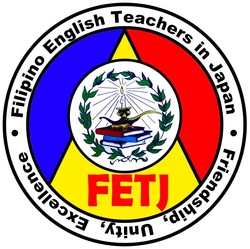 Presented for the July 28th Teacher Training seminar of the Filipino English Teachers of Japan (FETJ), Saitama Chapter. FETJ is a true grassroots teachers' organization in Japan. Led by friend and colleague Aurora Dobashi, I am happy to be counted among their ranks as an educator and innovator. In my module, we reviewed the very magic words "you said", "I think", "because", "for example", and "tell me more!" These components of conversation work easily together for the expression of opinions and construction of arguments, as well tracking another speaker's own opinions and arguments. Click here for the entry for FETJ's Facebook page.  Presented for the March 4th 2012 meeting of ETJ Saitama with my teaching partners Kotoe Yamane and Renz Valderama. English Conversation Class has a special role in Saitama City. Under the Uroi no Jikan program, students confront their future selves, build cities, and debate in English. This experiential lesson reviews the powerful techniques logical discussion, presentation practice, and some clever uses of stationery that make Uchiya Junior High School a leader in curriculum development and student (and teacher!) satisfaction. This was a long-format workshop engaging a different crowd of teachers, mostly elementary and private-tutor educators, with us bearing the fruits of several years at Saitama's largest junior high school. Participants built up a city of their dreams, compared it against the cities of others, diagrammed these advantages, created an outline of such advantages into a presentation, practiced that presentation in a controlled and systematic fashion, gave a speech, and then finally assessed themselves and their peers on the efforts across the day. Without a doubt one some of my densest, "wettest" lesson materials yet shared. Special thanks to the AMAZING faculty I work with, and their first time presenting before an EFL professional group. Click here for the entry from eltcalendar.com. .  Presented as an extended MyShare for the Yokohama Chapter of JALT on December 18 2011. Alternately titled “How to climb a mountain in 90 minutes or less”, this presentation reviews the obstacles (and solutions) to applications of English debate at the JHS level. Drawing on five years of experience across 57 schools, the results are clear – debate is an appropriate, attainable, and natural conclusion to compulsory English education. I gave this MyShare while sweating profusely, as I had made the foolish mistake of packing a day's worth of content into an unbelievable 25 minutes. The best takeaway-point was employing the "Reason Relay" activity in your classroom. Starting from zero, teams or individuals add points to their score through constructive reasoning. If asked to compare the seasons, you might see some plays like so: "We can go swimming in summer." 1 point added to Summer's score "Fall doesn't have many fruits." 1 point subtracted from Fall's score "Spring is the most beautiful season, because we can see many flowers" 2 points added.. "Spring is the most beautiful season, because we can see many flowers, for example roses, daffodils, and daisies." 3 points added... And so on. By changing the arrangement or scale of point scores, you can provide some structure and extrinsic motivation for students as they get comfortable with their arguments and statements required for debate. Click here for the entry on the altsjapan web page. 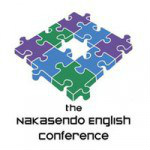 Presented for the Nakasendo Conference held at Dokkyo Junior and Senior High School in 2011. Game Show style quizzes are explored and reassembled for the benefit of teachers in this lesson. Drawing from experiences across seven school grades, attendants will be asked to participate in a session that covers planning, support, and feedback systems which provide teachers with the means to use such lessons as a means to approach new or previously learned topics alike. Briefly, Game Shows utilize testing (shown to increase retention to a greater extent than mind-mapping, extensive reading, or other contemporary studying methods), experiential learning (which creates richer, more accessible memories as a result of social, physical, and contextual content), and allow teachers to give a bit more control of the class over to their students. Included is the PowerPoint file used to run the lecture component of the workshop.
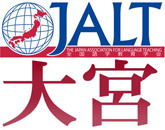 Presented as a MyShare short-format presentation for Omiya JALT, March 13 2011. This experience-based lesson demonstrates successful elements of contemporary and previous game shows, and how they might best be applied for content retention. Game-related issues such as problem creation, problem selection and scoring, and participant-response dynamics are specifically addressed through examples; a review of studies in cognitive science makes the case for testing as a means of effective content retention. This presentation would further be developed and given as a lecture and workshop for the Nakasendo conference. This lesson used a PowerPoint version of Jeopardy originally developed by Kevin Culpepper. Click here for Jeopardy and other works. Entry from JALT National's website available here. 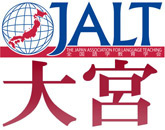 Presented for Omiya JALT's Spring My-Share, March 14 2010. Matt Shannon’s presentation will focus on deploying effective creative writing assignments in late junior and early senior public high school classes does not appear to have any foundation in MEXT curricula; this session will address some steps taken to allow creative student responses while staying within the scope of existing compositional and argumentative forms for this age group. This was the public unveiling of the One Day One Story format, which asks students to combine composition with three to five pictures taken over the course of a single day. As viewers are naturally drawn to their own conclusions about what the pictures are saying, we find a compelling reason to scour the text as we seek to confirm or deny or own expectations. Entry from JALT National's website available here  Existing English curriculum for junior high school students in contemporary Japan may be considered lacking in the area of extemporaneous or compositional writing. Contributing factors to this are varied, but the element of social expectations may be remedied through relatively simple transformations of existing narrative structures and by borrowing conventional plot devices from outside the classroom. Displacement of the assumed "right" response into areas of vagueness or previously unconventional areas may have the effect of challenging more skilled students to re-assess their abilities, but also to reduce expectations of among less skilled students and thus reduce typical competitive and goal-oriented pressures. This was written when I thought big words were impressive! Long story short, try these writing prompts and see what happens-
Click here for event listing on ETJ's site |
|||||||
